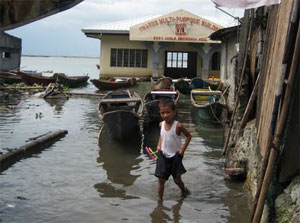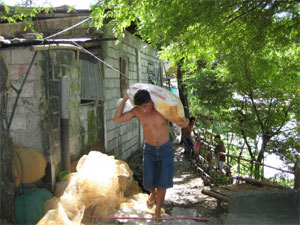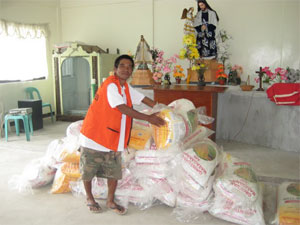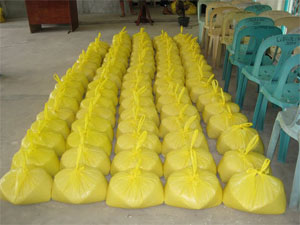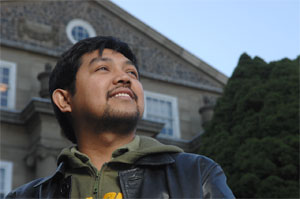 |
| Clarence Batan is a PhD student in sociology at Dalhousie. (Danny Abriel Photo) |
Being an international student when a disaster strikes at home is probably the toughest thing Clarence Batan has coped with studying at Dalhousie.
From the Philippines, the graduate student in sociology felt helpless upon hearing in late September that Typhoon Ketsana had battered the tiny island where he had focused his research on rural youth.
“It’s so difficult to be away and experience disasters from afar,” says Mr. Batan, 34, who expects to complete his PhD in a few months and return to the Philippines where he is an assistant professor at the University of Santo Tomas in Manila. “Especially when you know how difficult disaster management is in the Philippines, it really makes you feel bad.”
| ||
| ||
| ||
|
Even as he began to raise money to help the people he knew so well in the small fishing village of Barangay Kasile on Talim Island, the area was devastated by two more storms. Then, a fourth typhoon, Mirinae, swept in and dumped even more rain on the low-lying fishing villages of Talim Island.
“There was help for the people in metro Manila, but not Talim. No one could reach those people except by helicopter,” says Mr. Batan, who sent out an appeal for help among faculty and friends in the Departments of Sociology and Social Anthropology and put out a shoebox to collect donations.
It didn’t take him long to gather more than $1,000, which he decided to spend on rice. Working with his research assistants in the Philippines, he arranged for the distribution of 22 50-kilogram bags of rice to be divided among 150 flood-affected families.
Getting the rice to the island turned out to be a major challenge: the bags were loaded on a raft by fish porters, then carried by foot to boats for the hour-long trip to the island, and then unloaded and carried again by foot to the highest ground in the village. On October 30, about a month after the first typhoon struck, the villagers of Barangay Kasile gathered to say a prayer of thanks.
“Even being miles and miles away, they know I have generous friends here,” says Mr. Batan, who is finishing his PhD thesis on “istambay,” a Filipino term meaning “on stand by.” He uses it to describe Filipino youth, out of work and out of school, and trapped by the lack of opportunity that keeps the Southeast Asian country impoverished.
“It’s wonderful for them to experience that sense of community, that they have friends beyond the Philippines.”
The flood waters aren’t expected to recede in some areas of the Philippines until next year. Mr. Batan would like to do something else for the people of Barangay Kasile, perhaps a Christmas party for the children, and is gratefully accepting donations. If you’d like to contribute, please contact Mr. Batan at cbatan@dal.ca.

